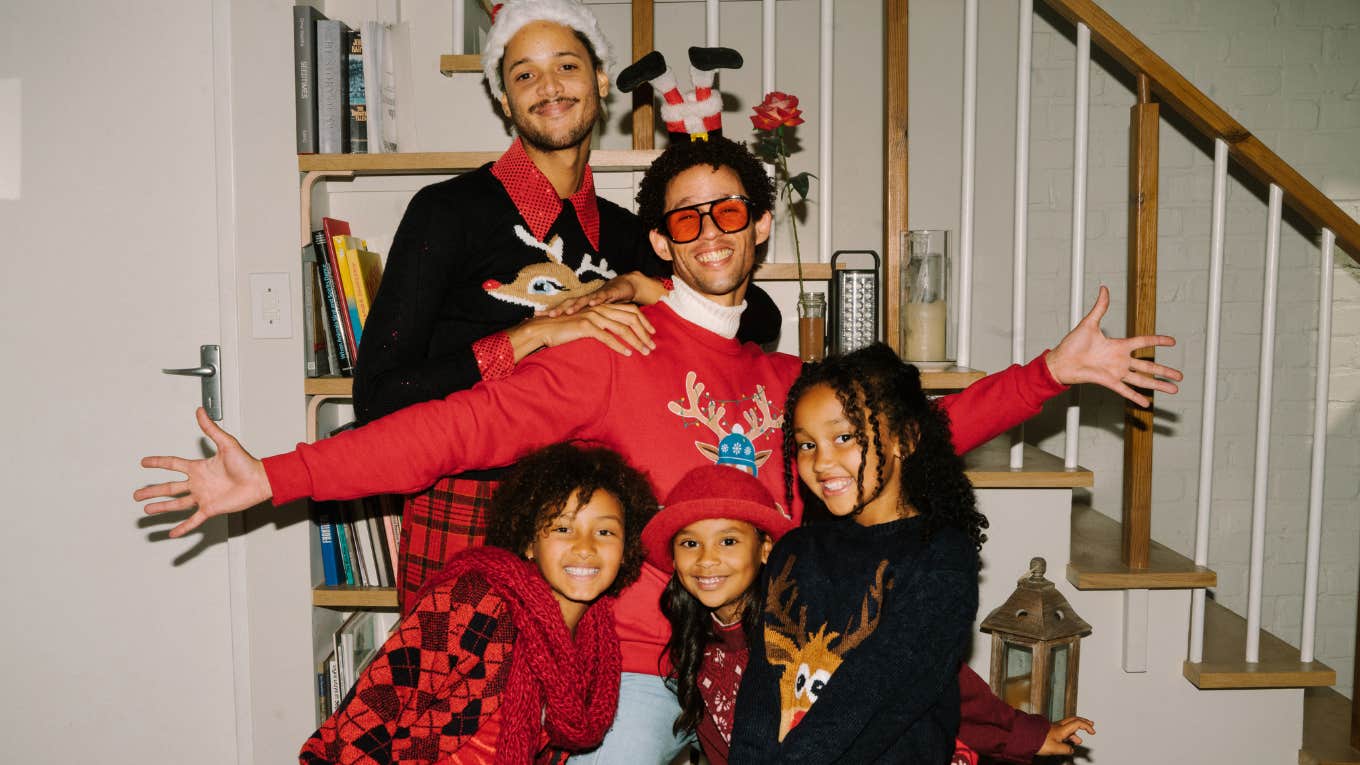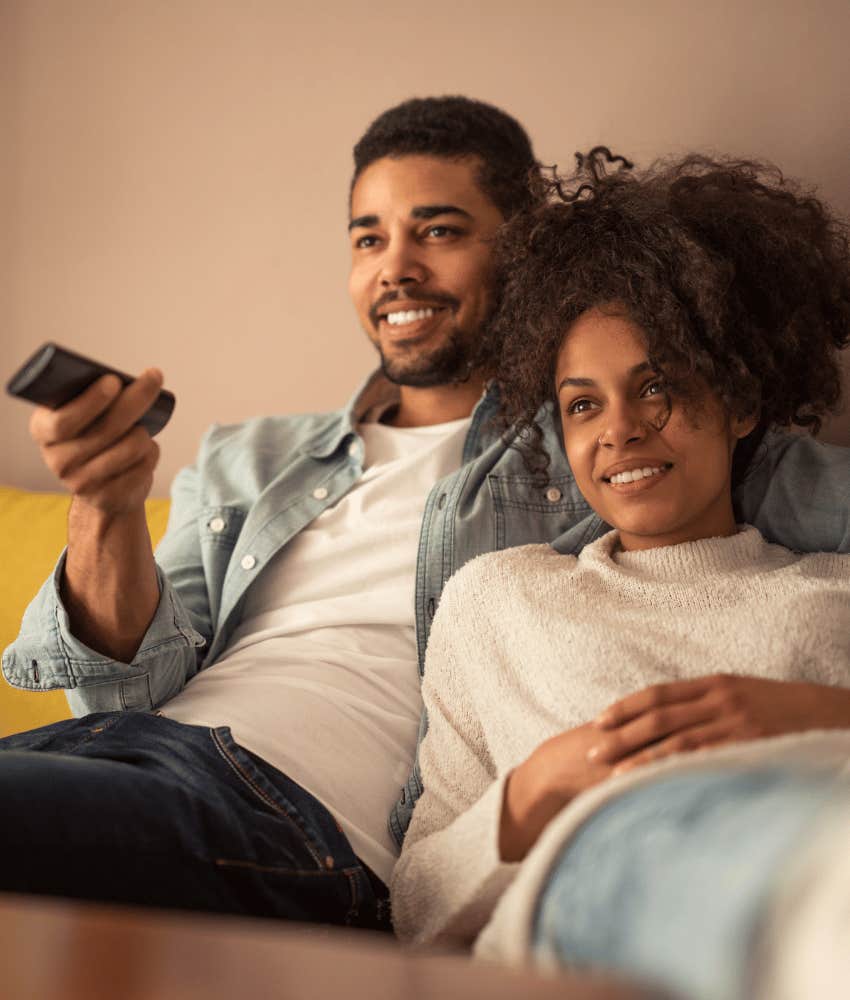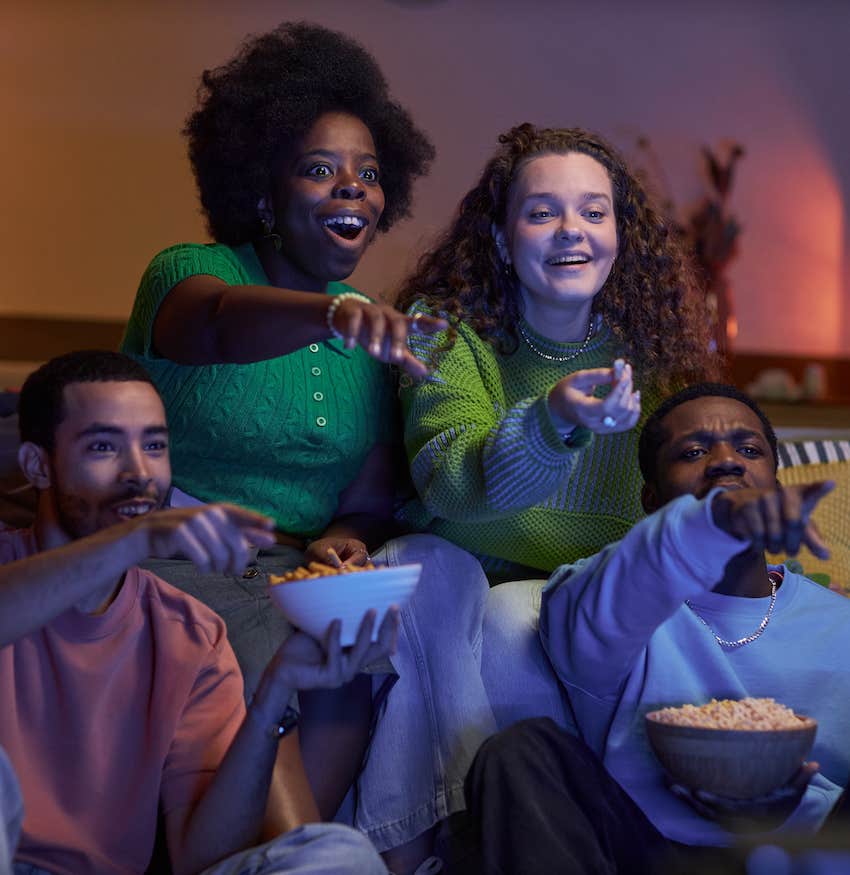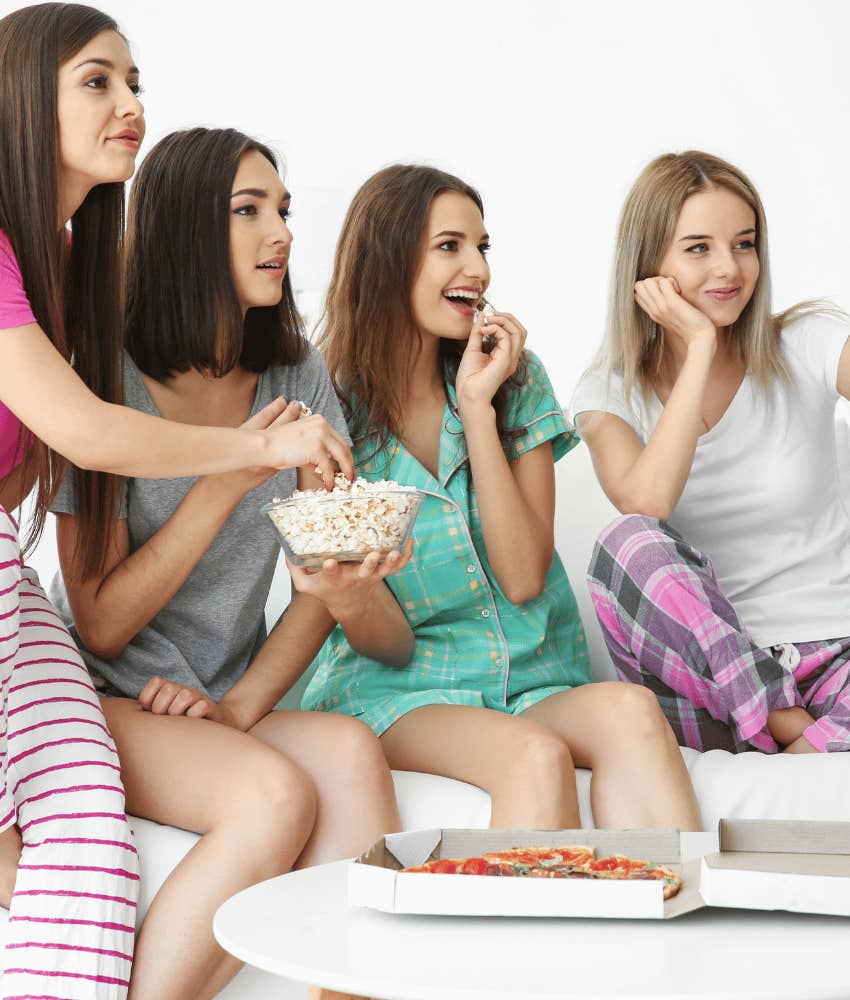The Simple Holiday Tradition That Will Bring Almost Any Family Closer Together
Find the holiday miracle we all hope for.
 Superette | Canva
Superette | Canva Watching movies together during the holidays is one of the most popular traditions for families in the United States, and it's the one that will bring almost any family closer together.
During a recent trip to the movie theater with my father, I realized this isn't only a bit of fun entertainment; it's one of the most important things for family members and loved ones to do together.
My father and I approached the ticket window at his local movie theater. In his Sicilian-American Brooklyn accent, he said, “I’ll have one senior ticket for Bohemian Rhapsody and one regular for Green Book.
“Separate movies?” The young man behind the plexiglass asked, just as surprised as I was. “What? You’ve never seen that happen before?” my dad asked.
A few days earlier, my dad said he’d like to see "Green Book," but when we met up in town for a bite before the movie, he wasn’t sure.
“What about Bohemian Rhapsody? I hear it’s good,” he said. “Wanna see it again?” I didn’t. After 46 years, I know my dad is a guy who does what he wants when he wants. But standing there at the ticket window, it still stung. Seeing different films seemed absurd, but it’s how family members do things now.
We watch on our own devices. We favor what we want to see over a communal viewing experience. Amidst all the technological advances we’ve created in the past century, this may have contributed most to our loss of connection.
Since the beginning of time, people have circled a fire, listening to a storyteller. In past centuries, books were read aloud in groups. With the invention of the radio, families gathered around the big wooden box in the living room. And when the TV arrived, it was too expensive to have more than one newfangled contraption, and so the collective experience continued. Even the Simpsons watch TV together.
But, experiencing stories served a greater purpose than passing the time, providing entertainment, and keeping the kids quiet.
 bbernard via Shutterstock
bbernard via Shutterstock
In her book Wired for Story, Lisa Cron discusses the neuroscientific reasons stories are critical to our evolution.
“A study in which subjects underwent functional magnetic resonance imaging (fMRI) of the brain while reading a short story revealed that the areas of the brain that lit up when they read about an activity were identical to those that light up when they experience it," Cron writes.
In other words, at Christmas, a family didn’t just watch It’s a Wonderful Life — they lived it. They became George Bailey. And like George, hopeless and contemplating ending his life, they recovered their will to live just in the nick of time.
If we’re laughing and crying with a protagonist like George Bailey, then all of us are synced up for two hours — vibrating at the same frequency, something that’s far more difficult to achieve at the dinner table.
Before cable television, VCRs, TiVo, streaming services, and binge-watching, we watched shows at the same time each week — and we watched them together.
 SeventyFour via Shutterstock
SeventyFour via Shutterstock
We became enchanted by the same characters, frightened by and delighting in the same things. And then we discussed it all the next day at the water cooler. Something that’s said to have advanced gay rights more than Gay Pride parades and politics was the television show Will and Grace.
The characters on the show allowed the audience to see LGBTQIA+ as fellow humans instead of as “others.” Social scientists call the phenomenon “The Will and Grace Effect,” reflecting how storytelling can change social biases, as shown in a study in the Journal of Homosexuality. It brings us together, awakens empathy, and helps us evolve.
“Story was more crucial to our evolution than opposable thumbs," Cron continues. "Opposable thumbs just let us hold on, and the story told us what to hold on to.”
As I sat through Green Book, I missed having my dad beside me. Despite the controversy, as explained by an article in Theory and Practice in Language Studies, regarding the accuracy of the film, he would have liked it.
But what I would’ve liked was to hear when he laughed, to nudge him when the Sicilian dialect was spoken, and to talk about the seven fishes eaten on Christmas Eve and whether we would make them this year like they do in the movie.
As we walked to our respective cars, I would’ve been interested to hear his thoughts about the racism depicted in the film. I didn’t get that chance because our movies were out at different times.
He’d gone home by the time mine ended, and the opportunity was lost. He liked his film. I liked mine. But there were no shared moments between us.
At a time when our country feels so divided, maybe we need collective experiences of storytelling more than ever.
 Africa Studio via Shutterstock
Africa Studio via Shutterstock
The holiday season amplifies everything we feel, including our sadness and our sense of isolation. What we need at this very minute isn't a little Christmas spirit. What we need is a little connection. No, make that a lot of connection. If stories can do that for us, why not use them?
Instead of letting everyone unwrap their tablets and smartphones and rush off with their devices, go watch Elf with family members glued to it in the other room. Apologize to the one who always has to defend their stance that "Die Hard" is, in fact, a Christmas movie. Offer the box of Kleenex to the one who cues up "Love, Actually" year after bloody year.
Watching a movie together on Christmas Eve might just give you the holiday miracle we all hope for — a priceless feeling of unity.
Michelle Fiordaliso is an executive coach, award-winning writer, and filmmaker. She is the co-author of Everything You Always Wanted to Know About Ex and has appeared as a relationship expert on Today, Tyra, and Oprah Radio.

